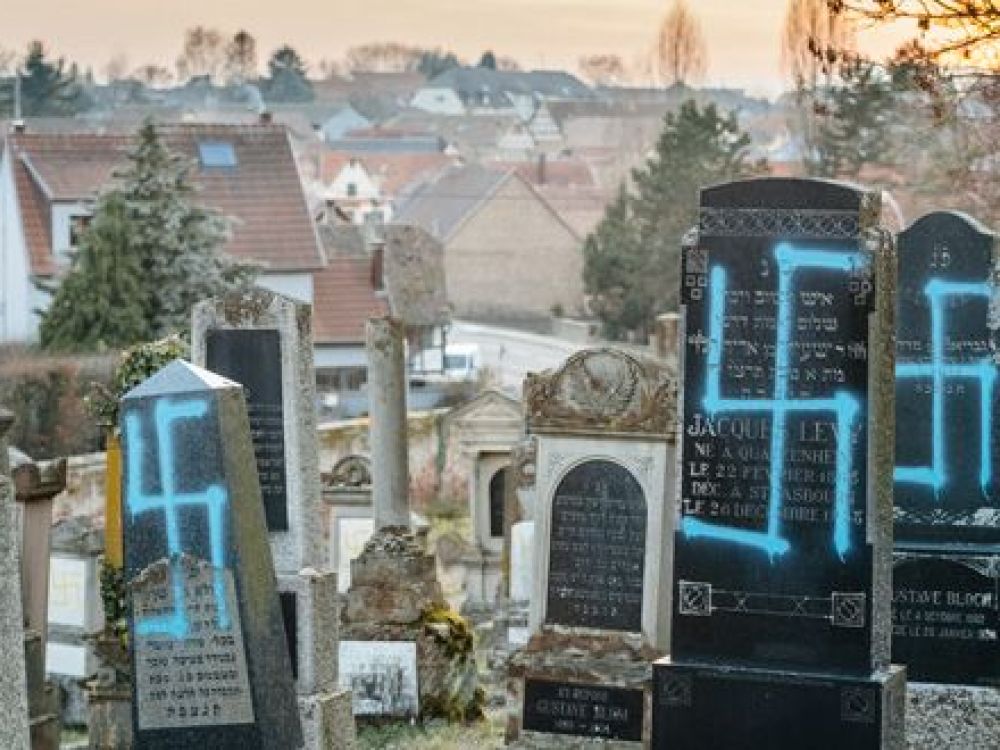
Antisemitism During the Pandemic: Less Physical Violence, Upsurge in Online Antisemitism
On the Eve of Israel’s Holocaust Remembrance Day, the Kantor Center for the Study of Contemporary European Jewry publishes the Antisemitism Report for 2020.
The Antisemitism Report for 2020 – the year of COVID-19 – published today by the Kantor Center for the Study of Contemporary European Jewry at Tel Aviv University’s Faculty of Humanities in cooperation with the European Jewish Congress – indicates contradictory trends: On the one hand, a decrease was seen in physical violence resulting from the reduced encounters between Jews and violent anti-Semites due to the lockdowns. On the other hand, accusations against the Jews (allegedly responsible for the global disaster), were manifested in a rise in blatant antisemitic expressions on the internet in general and on social networks specifically. In addition, new phenomena developed on the internet, such as zoom bombing and the darknet, which are difficult to quantify.
The Report is based on thousands of testimonies from different places around the globe, received throughout 2020 from the international network established by the Kantor Center several years ago – which includes about 60 participants who regularly send in information about antisemitism worldwide.
WATCH the interview with Prof. Dina Porat, Head of the Kantor Center:
According to Prof. Dina Porat, Head of the Kantor Center: “The coronavirus pandemic and the resulting reality dictated both the nature and extent of antisemitism in 2020, which was an unusually tense and turbulent year all over the world. Prejudice, superstition, primordial emotions, and bizarre theories surfaced on the scene, and manifestations of antisemitism, both verbal and visual, were vicious and outrageous. Blaming the Jews and Israelis for developing and spreading the coronavirus (or the ‘Judeovirus’), was the main motif in this year’s antisemitic manifestations. This notion is rooted in a deep fear of the Jew/Israeli as a spreader of disease in both the past and present.”
Blaming the Jews and Israelis for developing and spreading the coronavirus (or ‘Judeovirus’) is a graver accusation than any previously made against Jews throughout history: As the pandemic began to spread across the globe, it was immediately followed by accusations that the virus had been developed and was being spread by Jews and Israelis: they are the ones who would find a cure and vaccine for the disease, selling it to the ailing world and making a huge profit. Over the following months this libel spread rapidly. We received reports to this effect from dozens of countries, in the form of aggressive messages and numerous malicious caricatures.
Moreover, the accusation was heard not only from extremist circles, such as white supremacists, ultra-conservative Christians, or the usual accusers like Iran, Turkey and the Palestinian Authority, and especially Iran, that invested efforts in disseminating the accusation. It also spread to populations without well-defined political or ideological identities.”
Fewer Encounters, Fewer Violent Events
As noted above, lockdowns in the various countries reduced encounters between Jews and their ill-wishers, and consequently the number of violent events declined from 456 (in 2019) to 371 in 2020 – a number that was typical of 2016-18. No one was murdered this year for being Jewish (although physical attacks could potentially have had fatal outcomes), and the number of bodily injuries decreased from 170 in 2019 to 107 in 2020. Damage to private property was also reduced from 130 to 84 incidents, simply because people mostly stayed at home.
In most countries a decrease was registered in the number of violent incidents, attacks on both people and their property, threats and arson. However, vandalism towards Jewish communal property and institutions remained as frequent, and in some cases they became more frequent (see table). The number of desecrations of graveyards, Holocaust memorials and other Jewish monuments (open and unprotected sites) rose from 77 (2019) to 96 (2020) incidents worldwide, and the number of vandalized synagogues (being closed, they became easy targets) also increased from 53 (2019) to 63 (2020).
Related posts


Haredi Jews – The Main Target of Antisemitic Assaults

New Exhibition at the Wiener Library Features “Jews out!” – a Children’s Board Game from Nazi Germany


Annual Review – Positive Trends in Fighting Antisemitism and Radicalization around the World



